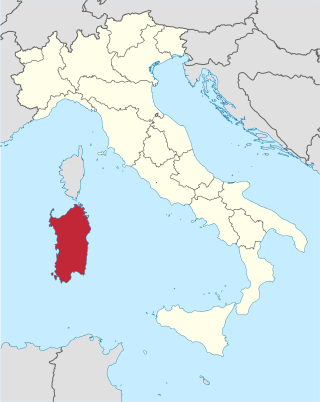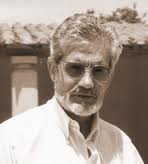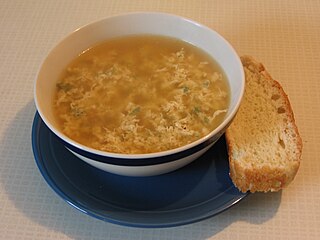
Grazia Maria Cosima Damiana Deledda, also known in Sardinian language as Gràssia or Gràtzia Deledda, was an Italian writer who received the Nobel Prize for Literature in 1926 "for her idealistically inspired writings which with plastic clarity picture the life on her native island [i.e. Sardinia] and with depth and sympathy deal with human problems in general". She was the first Italian woman to receive the prize, and only the second woman in general after Selma Lagerlöf was awarded hers in 1909.

Sardinia is the second-largest island in the Mediterranean Sea, after Sicily, and one of the twenty regions of Italy. It is located west of the Italian Peninsula, north of Tunisia and immediately south of the French island of Corsica.

The unification of Italy, also known as the Risorgimento, was the 19th-century political and social movement that resulted in 1861 in the consolidation of various states of the Italian Peninsula and its outlying isles into a single state, the Kingdom of Italy. Inspired by the rebellions in the 1820s and 1830s against the outcome of the Congress of Vienna, the unification process was precipitated by the Revolutions of 1848, and reached completion in 1871 after the capture of Rome and its designation as the capital of the Kingdom of Italy.

The Italian Liberal Party was a liberal political party in Italy.

The Strega Prize is the most prestigious Italian literary award. It has been awarded annually since 1947 for the best work of prose fiction written in the Italian language by an author of any nationality and first published between 1 May of the previous year and 30 April.

The County of Nice is a historical region of France located around the southeastern city of Nice and roughly equivalent to the modern arrondissement of Nice.

Giuseppe Maria Garibaldi was an Italian general, patriot, revolutionary and republican. He contributed to Italian unification and the creation of the Kingdom of Italy. He is considered to be one of Italy's "fathers of the fatherland", along with Camillo Benso, Count of Cavour, Victor Emmanuel II of Italy and Giuseppe Mazzini. Garibaldi is also known as the "Hero of the Two Worlds" because of his military enterprises in South America and Europe.

Massimo Mattioli was an Italian artist and cartoonist. He was known for his humorous children's work and adult comics series.

A condaghe, from the medieval Sardinian term kondake, was a kind of administrative document used in the Sardinian judicates between the 11th and 13th centuries. They are one of the earliest witnesses for the development of the Sardinian language and are an important source for historians of medieval Sardinia.

Alberto Cavallari was an Italian journalist and writer.

Giulio Angioni was an Italian writer and anthropologist.
The John Florio Prize for Italian translation is awarded by the Society of Authors, with the co-sponsorship of the Italian Cultural Institute and Arts Council England. Named after the Tudor Anglo-Italian writer-translator John Florio, the prize was established in 1963. As of 1980 it is awarded biannually for the best English translation of a full-length work of literary merit and general interest from Italian.

Salvatore Mannuzzu was an Italian writer, politician, and magistrate.

Flavio Soriga is an Italian writer.

Lucio Abis was an Italian politician from Oristano who was part of the Christian Democrats.

Michela Murgia was an Italian novelist, playwright, and radio personality. She was a winner of the Premio Campiello, the Mondello International Literary Prize and Dessì prize, and was an active feminist and left-wing voice in the Italian public scene, speaking out on themes such as euthanasia and LGBTQ+ rights.
Frances Frenaye (1908-1996) was an American translator of French and Italian literature. She translated work by writers including Giovanni Guareschi, Balzac, Carlo Levi, Ignazio Silone and Elie Wiesel.

Stracciatella, also known as stracciatella alla romana, is an Italian soup consisting of meat broth and small shreds of an egg-based mixture, prepared by drizzling the mixture into boiling broth and stirring. It is popular around Rome, in the Lazio region of central Italy. A similar soup, called zanzarelli, was described by Martino da Como in his 15th century manual The Art of Cooking. Other variants exist.
Fiorenzo Serra was an Italian film director and documentarist.
Dessì is an Italian surname, and may refer to:















